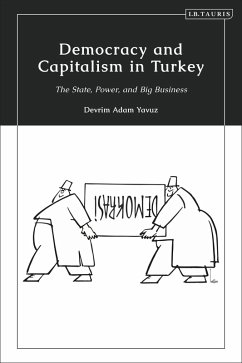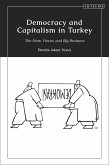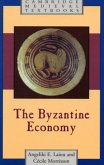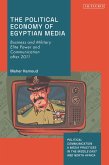While a positive correlation between capitalism and democracy has existed in Western Europe and North America, the example of late-industrializing nations such as Turkey has demonstrated that the two need not always go hand in hand, and sometimes the interests of business coincide more firmly with anti-democratic forces. This book explores the factors that compelled capitalists in Turkey to adopt a more pro-democratic ideology by examining a leading Turkish business lobby (TÜSIAD) which has been pushing for democratic reform since the 1990s, despite representing some of the largest corporation owners in Turkey and having supported the state's authoritarian tendencies in the past such as the military coup of 1980.
Drawing on roughly 70 interviews with influential members of TÜSIAD and individuals close to them, the book reveals that business leaders were willing to break away from the state due to the conflict between their evolving economic needs and power with a political elite and state that were unwilling to cater to their demands. In so doing, the book provides a rich account of business-state relations in Turkey as well as providing a case study for the wider study of democracy and capitalism in developing nations.
Drawing on roughly 70 interviews with influential members of TÜSIAD and individuals close to them, the book reveals that business leaders were willing to break away from the state due to the conflict between their evolving economic needs and power with a political elite and state that were unwilling to cater to their demands. In so doing, the book provides a rich account of business-state relations in Turkey as well as providing a case study for the wider study of democracy and capitalism in developing nations.









